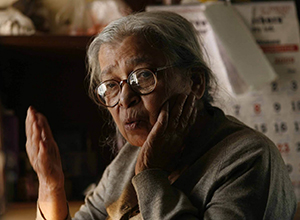Kolkata, July 28: A litterateur with the zeal of an activist, Mahasweta Devi used creative expression as a tool to fight for the rights of the indigenous people and marginalised sections.
With the sincerity of an activist and the passion of a writer, the Bengali writer was the voice of the oppressed in her novels and short stories, which won her a number of awards including the Padma Vibhushan, Magsaysay, Sahitya Akademi and Jnanpith.
All her acclaimed works like 'Hajar Churashir Ma' (Mother of 1084), 'Aranyer Adhikar' (Right to the Forest, 'Jhansir Rani' (The Queen of Jhansi), 'Agnigarbha' (The Fire Within), 'Rudali', 'Sidhu Kanhur Daakey', etc give us invaluable insights into the lives of the oppressed class.
A number of her works have been adapted for the silver screen. Govind Nihalani's 1998 Hindi film 'Hazaar Chaurasi ki Ma' (The Mother of 1084) is based on her Bengali novel on the emotional struggles of a mother who tries to understand the reasons behind her son's involvement in the Naxalite movement.
In 1993, Kalpana Lajmi also made the award-winning 'Rudaali' on her novel by the same name chronicling the life of professional mourners upon the death of upper-caste males in Rajasthan.
Italian director Italo Spinelli also made the multi-lingual 'Gangor' based on her short story 'Choli Ke Peeche' about the rights of women.
Going beyond her role as a writer and journalist, Devi also helped tribals and the rural dispossessed in organising themselves in groups so that they could take up development activities in their own areas.
She founded several grassroot level societies for the welfare of tribals.
Despite enjoying celebrity status in her home city, Devi's lifestyle was simple and modest.
Born in 1926 in Dhaka to middle-class parents, her father Manish Ghatak was a renowned poet of his time and uncle was filmmaker Ritwik Ghatak, one of the front runners of parallel cinema movement in India.
She studied at Rabindranath Tagore's university in Santiniketan and married eminent playwright Bijon Bhattacharya, one of the founding members of the Indian People's Theater Association. The couple divorced later on.
Their son Nabarun, who passed away in 2014, was also a well-known poet and novelist who won the Sahitya Akademi award.
During her lifetime, the writer-activist also taught English literature in a college and also wrote for newspapers on topics related to rural India.
In one of her speeches she had remarked that social activism was the driving force of all her literary activities, be it literature, newspaper columns or the journal she edited.
For her novels and short stories, she travelled deep into rural areas to research the oral history of tribal communities especially in adjacent Bihar, Odisha and West Bengal.
Her historical fiction 'Aranyer Adhikar' (Right to the Forest), for which she won the Sahitya Akademi award, India's highest literary accolade, in 1979 is about the life and struggles of tribal leader Birsa Munda and the famous Munda rebellion against the British in the late nineteenth century.
In 'Agnigarbha', a collection of four long stories about the Naxalite tribal unrest, and in the novel 'Bish-Ekush' (1986), she chronicled untold stories about the Naxalite movement.
Other notable works of the prolific writer include 'Chotti Munda 0 Tar Teer (Chotti and His Arrow, 1979), 'Subhaga Basanta' (1980) and 'Sidhu Kanhur Daakey' (1981).







Comments
Add new comment